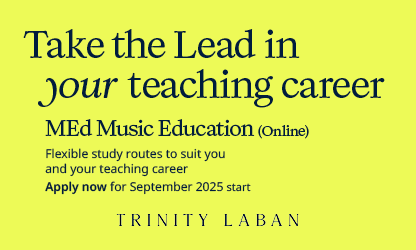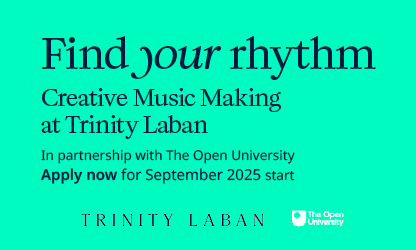You're not alone
Matching seven leisure-time music groups with emerging early-career composers for a collaboration could result in all sorts of complications.
But – touch wood – in 17 years of running the project it rarely has. This is because this unique project model comes with a lot of support, thanks to our funders, the PRS Foundation and latterly Creative Scotland and the Philip & Dorothy Green Music Trust, too.
From the very start, both groups and composers have had access to experienced mentors to help them. But this project is ever-evolving, and therefore in the last few years we’ve also added (as well as two dedicated composer days) a ‘group day’ at a stage halfway through the project.
Avoid potential pitfalls…
So on a cold and wet Sunday in January musical directors and others from this year’s music groups came together with their mentors, Making Music staff, partners Sound and Music and some previous participants in the project to look at how things could go awry. And how to prevent that happening.
The session with past Adopted Composer Michael Betteridge (paired with Cobweb Orchestra), conductor Matthew Hardy of the East London Community Band, and conductor David Hutchings of the Spectrum Singers drew out what had been most successful, what could have been done better, and what the unexpected outcomes were.
Almost universally, timetables and deadlines came up as treacherous terrain that needed to be negotiated carefully – for the benefit of both sides. This includes making sure that early musical material, which may or may not ultimately make it into the piece, is labelled correctly, so that music group members neither get frightened off by experimental bits of music which are just a research tool for the composer, nor fall in love with notes that might not make the final cut.
…and learn what success means
The overriding factor in determining the project a resounding success for composer and group is generally felt by both to be good relationship building and regular communication. Those projects where the composer ends up playing or singing with the group, going to the pub and listening to the interests and aspirations of the group members result in good buy-in from a happy group and a well-performed ambitious piece for the composer.
It’s important to acknowledge that all participants - group members, conductors, composers - are changed by these projects, and a strong relationship will make everyone involved more open to trying something new.
It’s probably new for the composer to work so collaboratively with a group, rather than ‘just’ delivering a finished piece of music. It may be new for the conductor to act as chief negotiator between the artistic ambitions of a composer and the (potentially sceptical) members of their group. And for group members, playing, often also contributing to, something being composed in front of their eyes, so to speak, is probably quite unlike anything they’ve ever done before.
One of the unexpected project outcomes for a previous participant was an enthusiastic audience response, which reflects a concern many groups have going into the project or performing new music in general. Drawing on the mentors’ previous experience, it became clear in discussion that many groups introduce their Adopt a Composer music differently to their audiences. It left me wondering if that may be a helpful factor in bringing audiences on board with new music more widely.
That was just one useful takeaway from this day which helped convey to the groups involved that if there are any obstacles, however minor or major, to the successful completion of their Adopt a Composer project, there is a lot of help and experience at hand.



